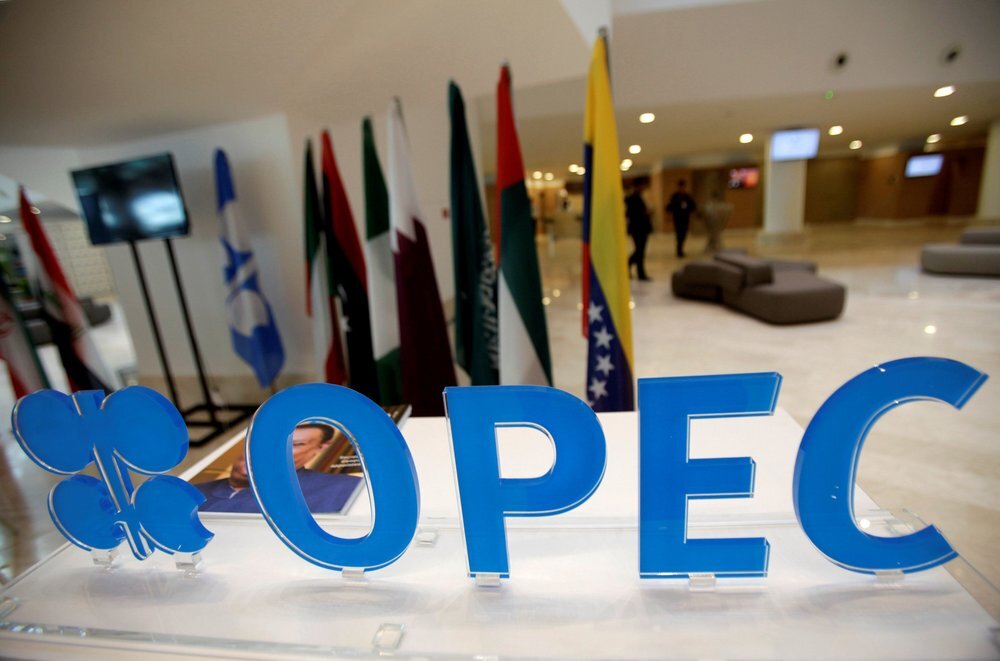Analysts calling OPEC, allies historic deal ‘insufficient’

TEHRAN – After four days of deliberation and drama, the Organization of Petroleum Exporting Countries (OPEC) and its Russian-led allies finally managed to get Mexico to join a global pact for cutting oil production by 9.7 million barrels per day (bpd) in May and June.
Despite the oil markets’ positive reaction to the decision (the international benchmark Brent crude gaining 1.24 percent to $31.87 per barrel in early Monday) analysts and experts all around the world believe that this is not going to be enough to offset the huge fall in the demand side.
The group, formerly known as the OPEC+, had earlier reached a primary agreement to cut their output by at least 10 million barrels for the mentioned months but Mexico did not agree with a 400,000 bpd share which was expected from the country.
Finally, with the U.S. intervention, Saudi Arabia and the Russians agreed to deepen their cuts offset Mexico’s partial commitment.
Following the big agreement, on Sunday, Goldman Sachs released a report saying that the bank expected the downward trend of the oil prices to continue in the coming weeks despite the “historic yet insufficient” deal.
According to Goldman, the agreed figure is not going to be enough to offset the demand fall following the coronavirus outbreak.
“Ultimately, this simply reflects that no voluntary cuts could be large enough to offset the 19 million bpd average April-May demand loss due to the coronavirus,” the Goldman report said.
Despite the unanimity of the experts on the magnitude of the demand rout and the fact that the cuts are still insufficient, some of them are less skeptical about the positive impacts of the deal.
Morgan Stanley’s market analysts, for instance, raised their forecast for the oil prices in the coming weeks, saying that although the cuts are not going to be enough in the short-term, they will prevent a huge surpluses erupting in the market in the second half of 2020.
“This is at least a temporary relief for the energy industry and for the global economy,” Rystad Energy’s head of analysis Per Magnus Nysveen told CNBC.
“Even though the production cuts are smaller than what the market needed and only postpone the stock building constraints problem, the worst is for now avoided.”
A long-term solution
Considering the fact that the agreed production cuts are not enough to wipe out all the surplus oil from the market, the most obvious solution is to reduce the global oil market even more.
However, since most of the world’s economies are already grappling with the economic consequences of the pandemic, expecting those that are part of the current pact to cut more is not just nor logical.
Therefore, other nations, like Canada, Norway and the U.S., that is currently the world’s biggest oil producer, should also take responsibility and shoulder some of the burden.
We should also bear in mind that the oil market’s current condition is, first of all, the biggest threat for the U.S. shale industry, so obviously, Washington should be among the nations that are paying the price for preventing the conditions from getting worse.
But apparently, the U.S. doesn’t seem to be willing to pay any price, taking the role of a by standing cheerleader, Trump has said that the U.S. is not going to cut its production since the market is naturally curbing the U.S. output!
On Friday, the U.S. Energy Secretary Dan Brouillette claimed that the U.S. oil output is expected to decrease by about two million bpd by the end of the year.
Unfortunately, the sole reliance on the market forces is not going to be of any help for the current situation and a more solid solution, as many believe, would be for all nations to come together and take responsibility to lead the market out of the current crisis.
With all that being said, however, it should be noted that even if all the nations collaborate and cut their production, the oil prices are not going to bounce back immediately.
The oil market, which has been negatively affected by various geopolitical factors in recent years, is going to need time to heal and get back to a more balanced state.
EF/MA
Leave a Comment